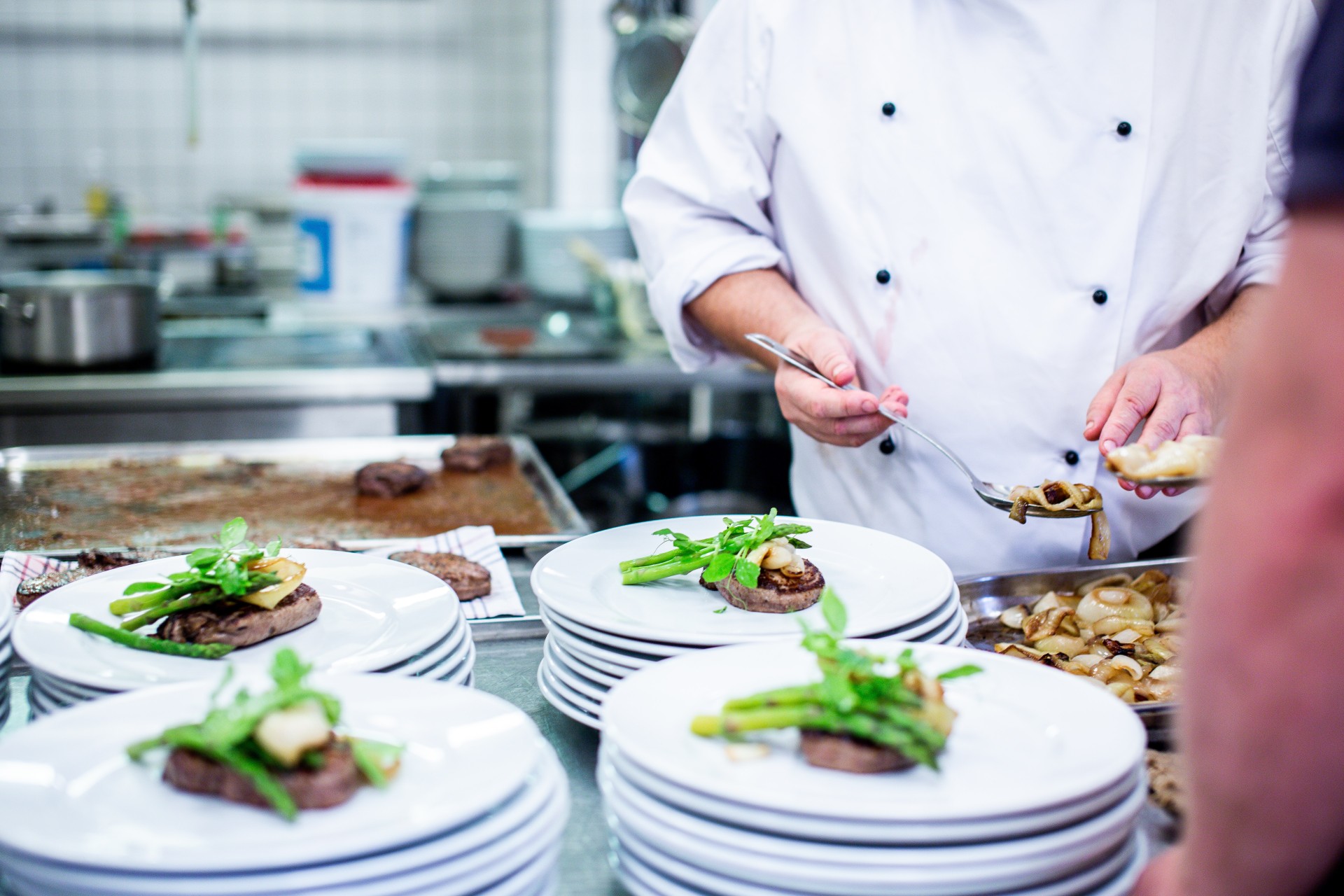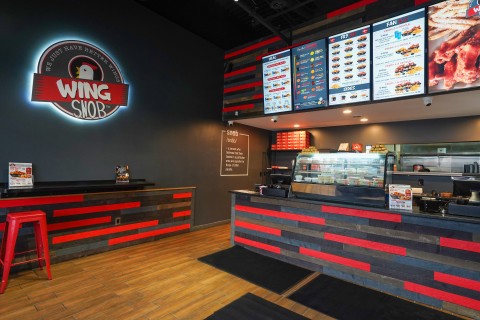Chef Josh turned in his application and within 24-hours got a call back from David, the restaurant owner. The two sat across from one another in the unlit, hollow dining room as the morning sun flooded the windows. In a few hours everything could be different, if this interview works out, thought Josh.
Three Key Questions for Chefs and Owners
The owner glanced at the cook’s resume and began asking the predictable questions Josh was accustomed to being asked over the years and had already practiced answers to. He knew what the owner wanted to hear and focused on appearing enthusiastic. Yes,I would consider myself a team player; yes, you can count on me to show up on time; and the three words I’d use to describe myself are reliable, talented, hardworking.
Across the table David diverted his attention from the other tasks competing for his time. The ice machine was on the fritz, payroll was due, and he just got a text from a server who wouldn’t show for tonight’s shift. You need this chef or you’re cooking and working another 20-hour day. In a few hours everything could be different, if this interview works out, he thought.
In fifteen minutes, chef Josh got the job and started immediately. Owner David got the chef he needed to cover the previous chef who walked out, and both breathed a sigh of relief. Unfortunately, both tacitly suspected this moment wouldn’t last. In fact, statistics show these honeymoons usually last only a few months, often only a few weeks. Rarely does such an interview yield a lasting relationship which serves both parties for more than two years. The scenario repeats itself in restaurants across the country with alarming frequency: Cook needs work, Owner needs a body with a pulse in the kitchen. They both agree to give it a shot.
Their relationship lasted fewer than six weeks.
It would be wildly refreshing and honest if the situation were transparent and realistic.
Imagine the owner-operator asking ‘Are you willing to work every waking hour in my kitchen, for little more than a living wage? Can you take over and make me money without my giving you clear direction and then take the blame when it doesn’t work out? Will you navigate chronic conflict amongst a revolving door of crew until one day, mentally and physically exhausted you’ve had it ‘up to here’ and quit without giving any notice?’
Imagine the chef asking ‘Will you give me a paycheck for every hour I work and get out of the way while I take control of the kitchen and run it the best I can? Can I have creative control without being held accountable for business-y things like controlling food costs, waste, labor, or budgets? When one day, mentally and physically exhausted I’ve had it ‘up to here’ and you blame me for being the root of your financial problems, will you fire me and leave me searching for another kitchen to work in?’
Sadly, both deeply want it to work out, and neither of them knows how to go about it. That’s why it’s so important to ditch the tired, routine, valueless questions so chefs and restaurant owners can consider what they mean to one another and how they can each get what they really want.
In this column, The Business of Chefs, we examine the relationship between a chef and restaurant owner. Like it or not, one can’t succeed without the other. The great news is each gets the chance to elect a healthy or unhealthy version of this codependent relationship. It is possible to create a relationship together that lasts (and is profitable and rewarding for both parties). Creating it requires the cook and the owner to examine a few questions from the very start.

3 Questions the Chef Should Ask About A Restaurant and Its Owner-Operator
- The chef should ask: Will I be able to succeed in this kitchen?
Success depends on how it’s defined. The chef may want to make a mark, move up the ranks, repair and rebuild an operation, make a name for him/herself. It’s critical to understand the chef’s path, not just the job or its paycheck, to see where the job fits into the arc of the cook’s career. Additionally, examine if the environment is one that could wreck a chef emotionally and physically because it lacks structure and clearly defined responsibilities. It’s as important to evaluate the menu and the cuisine the chef will cook as it is to identify whether every member of the team knows exactly what their job is, when it needs to be done and to what measure of quality it should be completed. Accepting a job before assessing this practically guarantees misery or an early departure.
- The chef should consider: Does the restaurant and kitchen demonstrate the presence of real, quality leadership?
When chaos or calamity are a daily occurrence, the phrase ‘the inmates are running the asylum’ comes to mind. This refers to an organization run by those who are the least capable of doing so. While this appears to degenerate culinary staff, it is in fact more a reflection of the owner-operator’s lack of leadership (or abdication of it). Working as a chef in a kitchen where you have some creative input is important, but it’s difficult to work well in a place that lacks the framework required to manage and direct the team toward a common, measurable goal.
- The chef should evaluate: Are there opportunities to grow here, or will I have to leave to advance my career?
Everyone understands chefs need a paycheck, but it’s only part of the reason chefs work for an establishment. Consider what comes after the initial training period; after the chef is familiar with operations and can crank out covers with eyes closed. Then what? The amount of time a chef will stay and do one thing without change, without a break or without the hope of advancement and growth is limited. That’s why it’s important to know what comes next.
The questions a restaurant owner-operator should ask are equally important.
Questions an Owner-Operation Should Ask About Its Chef
- The restaurant owner should ask: Do I fill job openings with bodies or hire people to fill roles on my team?
Everyone knows a cook’s job is to cook. But a chef’s job is quite different. According to David Scott Peters, author of Restaurant Prosperity Formula (What Successful Restaurateurs Do), “The chef sets and achieves the highest standards in the overall operation of the restaurant. In particular, a majority of the chef’s time is spent supervising and directing the operations and workforce, making staffing decisions, ensuring customer satisfaction and product quality, managing the restaurant’s financial performance, and marketing the restaurant. This sounds like the magic formula every owner-operator seeks but few have clearly outlined. It’s not reasonable to expect anyone to walk in off the street and create this scenario for you. Plain and simple: it is the job of the owner-operator to create this role and hire the person who will fulfill it.
- The owner-operator should consider: Do my FOH and BOH staff have a reason to stay with me?
While it’s true a segment of restaurant workers are en route to other careers, creating an environment which retains staff instead of being resigned to them hopping from place to place is ideal for both the worker and owner. It isn’t just that it costs approximately $5,000 to onboard and train each staff member; the alarming fact is this: at a 5% profit margin, a restaurant needs to bring in $100,000 of gross revenue to make up for every $5,000 turn of its restaurant’s revolving door. Creating a reason for staff to stay for their brief career in food and beverage, or for the length of a particular stage in their career is paramount to a restaurant’s bottom line.
- The restaurateur should evaluate: Do I take responsibility for leading or abdicating my operation?
We tend to make assumptions when it comes to basic communication. Owner David assumed since Josh knew how to cook and possessed experience, he’d know what to do in his kitchen. Chef Josh assumed if he showed up and cooked, David should be pleased with his work. Running a restaurant is just common sense, right? Wrong. The problem is, chef Josh didn’t have clear direction because owner David failed to lead. Failing to properly control or abdicating control of a business means bankrolling workers who have no clear instructions about what needs to be done, by whom, when, and at what quality level. The results are almost always unilaterally disastrous.
Thankfully, it is possible for chefs and restaurant owners to work together, profitably, and cooperatively when the owner clearly leads and sets measurable expectations. To achieve this harmony owners and chefs need to level up their leadership, management, and business skills. This isn’t babysitting or towing the line. To discern which opportunities are a match made in heaven and which will lead to inevitable heartbreak consider the questions each should examine in the initial interview.
Read Also: How Restaurants Can Adapt to the Great Resignation – F & B
In the next article we’ll look at the most successful methods to interview. These practices result in chefs and restaurant owners who are well-matched to take on income generating activities which not only develop the chef’s talent and business acumen but increase team loyalty and improve profits that extend the brand beyond the walls of the restaurant.
Columnist Holly Powers-Verbeck, founded and continues to operate Lake Tahoe’s premiere culinary staffing company HeyChef! since 1997. In 2018 she formed MakeYourBusinessCook! to help chefs launch private chef businesses and guide owner-operators who want to add private chef services to create revenue beyond their restaurant walls. For more information contact holly@makeyourbusinesscook.com.








